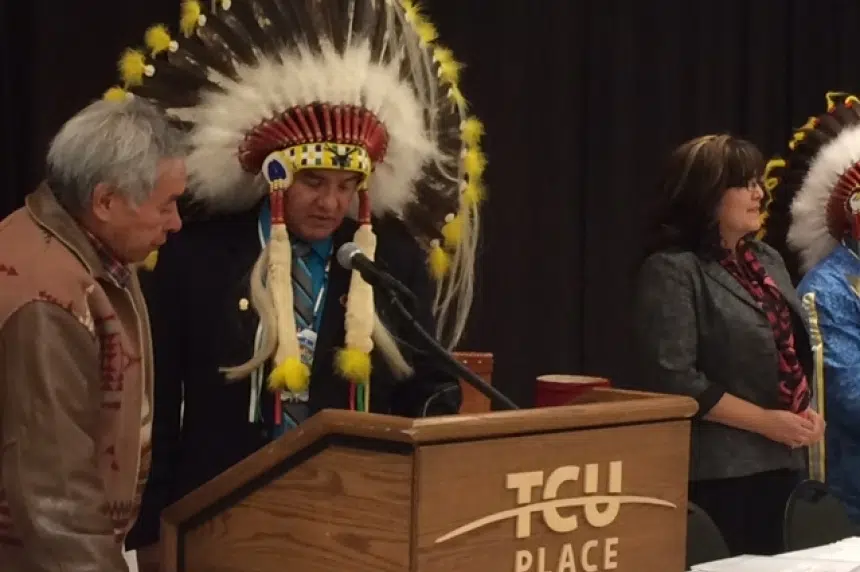The recent tragedy involving a family killed by a suspected drunk driver north of Saskatoon is something the FSIN’s top Chief is all too familiar with.
Bobby Cameron was 11 years old when a drunk driver took his father’s life. The family was driving to a swimming spot on the Witchekan Lake First Nation when their car was hit head on by a 16-year-old drunk driver.
“I was sitting in front. I broke my legs. I watched him breathe for a few minutes. Then it stopped. I knew dad had left us,” Cameron said.
Cameron remembers his brother and sister in the back seat crying out for their dad.
“I knew I had to be strong. I said ‘dad’s just sleeping. He’s going to wake up later and come see us,'” recalled Cameron.
Drawing on on his own personal tragedy and the recent one involving the Van de Vorst family, Cameron wants to see a renewed effort to end drunk-driving tragedies which happen more often in Saskatchewan than any other place in Canada.
“Thirty years later I tell myself, ‘totally avoidable accident if someone just didn’t get behind the wheel and drove drunk.'”
Cameron said efforts such as tougher penalties and education have failed to curb the behaviour, and so he wants to work with the government and stake holders on a new approach to end them once and for all.
He said solutions could include more education and better transportation options to deter people from getting behind the wheel after drinking.
“In rural Saskatchewan and First Nation communities, there are no transportation modes. There’s no taxi – there are no buses.”
While funding such programs will be a challenge, he said it shouldn’t be an obstacle.
“Certainly isn’t spending money in these types of (deterrents) and education items worth a lot more than … losing a life?”







